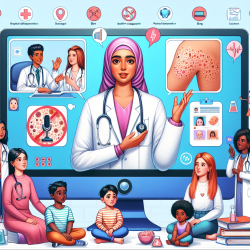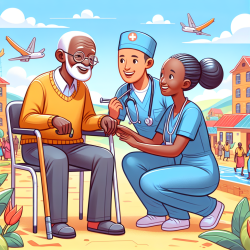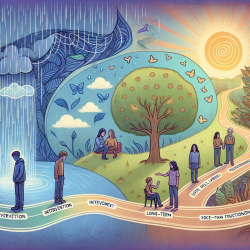Introduction
In the realm of educational and health promotion, engaging youth in meaningful ways is crucial for sustainable change. The research article "Process and experience of youth researchers within a Health Promoting Schools study in Nova Scotia, Canada" provides an insightful exploration into how Youth Participatory Action Research (YPAR) can be effectively utilized to engage young people in health promotion within schools. This blog post will delve into the findings of this study and explore how practitioners can leverage these insights to enhance their practice.
Understanding Youth Participatory Action Research (YPAR)
YPAR is a transformative approach that involves youth as active participants throughout the research process, rather than merely subjects of study. This method fosters youth-adult partnerships and aims to empower young people by involving them in decision-making processes that affect their lives. The study conducted in Nova Scotia employed the peer researcher method, training youth to conduct interviews and engage in data interpretation, thereby enhancing their research and interpersonal skills.
Key Findings and Implications for Practitioners
The study highlighted several key outcomes:
- Skill Development: Youth participants developed valuable skills in conducting interviews and engaging in research processes. Practitioners can incorporate similar training programs to build these skills in students.
- Personal Growth: The project facilitated personal development, including improved social and interpersonal skills. This underscores the importance of creating supportive environments that encourage personal growth.
- Open Dialogue: The project provided a platform for open dialogue on health and well-being, emphasizing the need for spaces where youth can freely express their views.
These findings suggest that practitioners should consider integrating YPAR methods into their programs to foster youth engagement and empowerment. By doing so, they can create more inclusive and effective health promotion initiatives within schools.
Encouraging Further Research
While the study provides a comprehensive overview of the peer researcher method, it also highlights the need for further research into the long-term impacts of YPAR on youth and school communities. Practitioners are encouraged to explore these methods in their contexts and contribute to the growing body of evidence supporting youth engagement in health promotion.
Conclusion
Engaging youth in health promotion through participatory methods like YPAR not only benefits the individuals involved but also enhances the overall effectiveness of health initiatives. By adopting these approaches, practitioners can ensure that youth voices are heard and valued, leading to more impactful and sustainable outcomes.
To read the original research paper, please follow this link: Process and experience of youth researchers within a Health Promoting Schools study in Nova Scotia, Canada.










